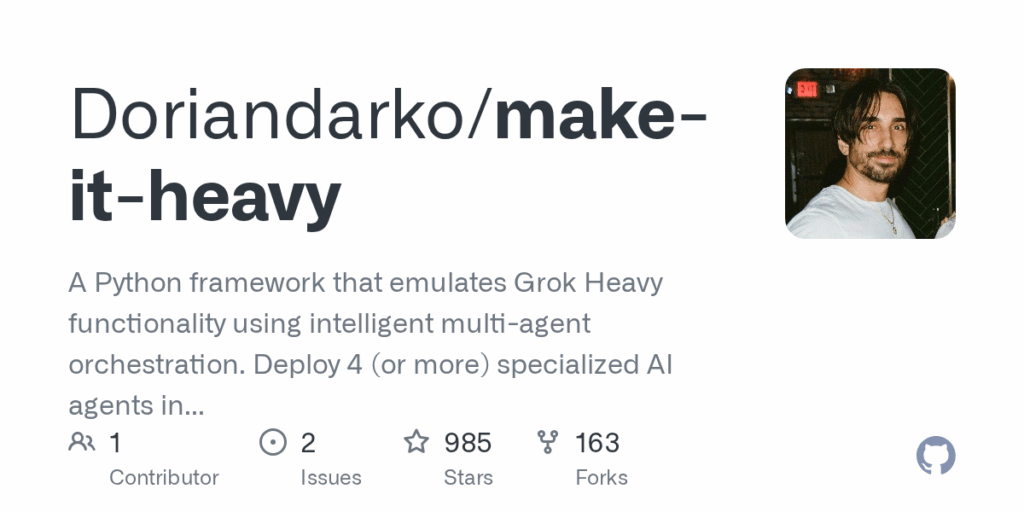make it heavy
Basic Information
Make It Heavy is a Python framework designed to emulate Grok heavy-style deep analysis by orchestrating multiple intelligent agents. It uses OpenRouter-compatible LLMs to run either a single tool-enabled agent or a multi-agent workflow that generates specialized research questions, runs parallel analyses, and synthesizes a unified answer. The project provides CLI entry points for single-agent and multi-agent modes, a configurable orchestrator, and an auto-discovered tool system that loads tools from a tools/ directory. It targets developers and researchers who want to run multi-perspective AI analysis, customize behavior via config.yaml, and extend capabilities by adding new tools. Prerequisites and runtime details in the README include Python 3.8+ and an OpenRouter API key.








